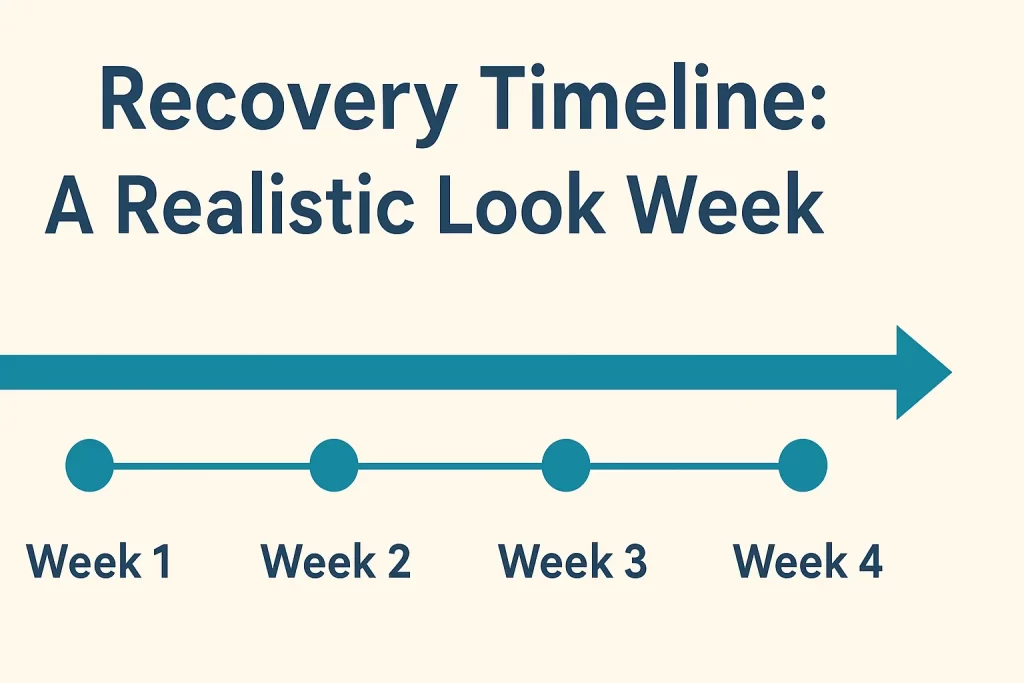Undergoing aradical hysterectomy is a major step in treating gynecologic cancers such as cervical, uterine, or ovarian cancer, and choosing the Best Gynecologist in Delhi for cancer treatment ensures safer surgical outcomes and a more confident recovery. While the surgery itself is a significant milestone, Radical hysterectomy recovery plays an equally crucial role in long-term health and well-being. Understanding what to expect physically and emotionally – can help you heal better and move forward with strength and confidence.
Understanding what to expect physically and emotionally during recovery can help you heal better and regain confidence, especially when guided by the Best Gynecologist Doctor who specializes in women’s cancer care.
What is a Radical Hysterectomy?
A Radical Hysterectomy is a complex surgical procedure that removes the uterus, cervix, upper vagina, nearby tissues, and sometimes periaortic lymph nodes for proper cancer staging.
This surgery is typically performed to treat gynecologic cancers, especially cervical cancer hysterectomy cases where cancer has spread beyond the cervix but has not reached distant organs.
Techniques used: Depending on the patient’s condition, the surgery may be Performed through
- Open Surgery (Traditional): Larger incision, longer recovery.
- Laparoscopic Surgery: Smaller incisions, quicker healing.
- Robotic-Assisted Surgery: The most advanced option, with greater precision and faster recovery.
Why It’s Done
Radical hysterectomy is recommended to:
- Remove cancerous tissues completely
- Stop the spread of cancer to nearby organs
- Reduce the risk of recurrence
- Improve overall quality of life and survival rates
Radical Hysterectomy Recovery Timeline: A Realistic Look Week by Week

Recovery isn’t the same for every woman. Some heal quickly, some need more time, and both are completely normal. Here’s the general pattern doctors see:
Week 1: Hospital Stay
Most women stay for around 3–5 days. You will have a catheter, IV fluids, and nurses helping you walk a little. It feels slow, but even a few steps count.
Weeks 2- 4: Early Home Phase
Fatigue is common. Your body is still figuring itself out. Gentle walking helps, and you’ll likely notice pain decreasing day by day.
Weeks 5-6: Mid-Recovery
Your body starts settling. Bowel movements normalize, stitches heal or dissolve, and you can slowly re-enter light household routines.
Weeks 7–8: Back to Routine
Many women return to light work by now. More energetic tasks and intimacy still need your doctor’s approval.
After 3 Months:
Most women feel almost like themselves again, aside from occasional tired days. Regular follow-ups continue—especially for cancer surveillance.
Important: Every recovery journey is unique. Always follow your surgeon’s specific instructions.
Common Physical Changes After Surgery or During Radical Hysterectomy Recovery
After a radical hysterectomy, women may experience several changes. Knowing what the body goes through helps reduce anxiety. Most women experience:
- Mild to moderate pain (especially the first 7–10 days)
- No periods anymore
- Slight bladder or bowel adjustments
- Scarring (minimal if robotic surgery was done)
- Hot flashes or mood swings if ovaries were removed
- Hormonal changes can also occurs if ovaries are removed, a possibility in both open and robotic surgery in gynaecology.
Some women also Google things like “Why do I feel pressure in my pelvic area after hysterectomy?”
This is normal tissues and muscles are adapting.
Tips for a Smooth and Healthy Recovery
Here are some essential steps to ensure a healthy, safe recovery:
Follow Your Doctor’s Instructions
This is not the time for shortcuts. medicines, rest, follow-ups, all of it matters.
Move Slowly But Regularly
Walking improves healing, digestion, and mood.
Eat Clean and hydrating Foods
High fiber foods and plenty of water prevent constipation which is a common issue after pelvic surgeries.
Do Pelvic Floor Relaxation Exercises
Not heavy workouts, just gentle routines recommended by a physiotherapist.
Take Care of Emotional Well being
Recovery is not only physical. Feeling overwhelmed is natural. Talking to a counselor or joining a support group helps more than you think.
Warning Signs to Watch For
Contact your doctor immediately if you notice:
- Persistent or worsening pain
- Heavy vaginal bleeding
- High fever or chills
- Redness or discharge from the incision site
- Sudden swelling in legs or difficulty breathing
Life After Recovery: What to Expect Long-Term
1. Regular Health Checkups
Even after successful treatment, regular follow-ups with the best laparoscopic surgeon in Delhi NCR are essential to monitor recovery and ensure long-term health.
2. Adjusting to Body Changes
- If ovaries were removed, discuss hormone replacement therapy (HRT) with your doctor.
- Embrace physical changes with self-care routines and gentle exercise.
3. Returning to Intimacy
- Sexual activity can typically resume 6 – 8 weeks post-surgery with doctor approval.
- Open communication with your partner is important for comfort and confidence.
4. Mental Health Support
- Healing is not just physical – emotional recovery matters too.
- Support groups and therapy can help you navigate feelings of anxiety or grief.
Emotional healing is equally important during radical hysterectomy recovery. Therapy and support groups provide comfort and confidence.
FAQs About Radical Hysterectomy Recovery
Q1: How long is the hospital stay after surgery?
Typically, 2-5 days depending on surgical technique and overall health.
Q2: Will I need someone to help me at home?
Yes, especially in the first 2-3 weeks for tasks like cooking, cleaning, and transportation.
Q3: Can I return to work after 4 weeks?
Light desk jobs may be possible, but heavy physical work requires at least 6-8 weeks.
Q4: Does radical hysterectomy affect sexual life?
It may initially, but most women resume normal intimacy after full healing.
Conclusion
A radical hysterectomy is a life-changing surgery, but with guidance from the best gynecologist in Delhi, you can heal fully and regain your health and confidence. With the radical hysterectomy recovery plan, women can return to healthy, confident living. Staying consistent with follow-ups, emotional support, and lifestyle changes ensures long-term wellness.
